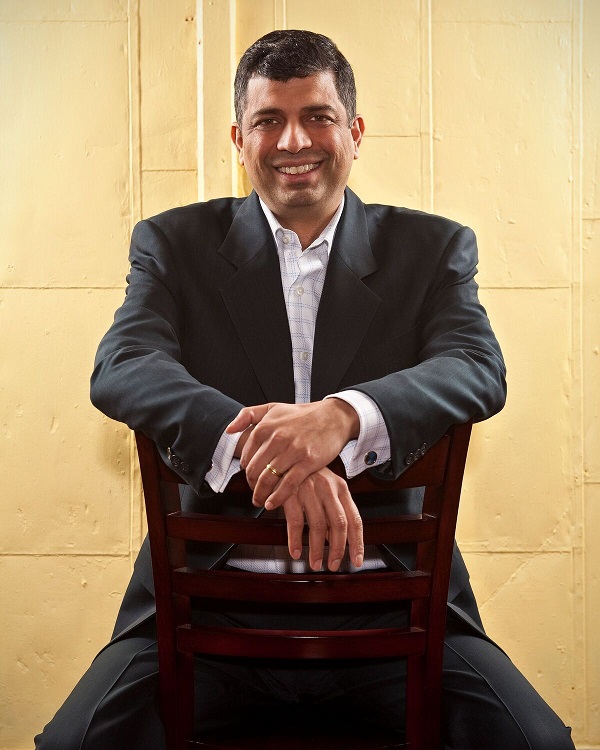
The class action lawsuit by the restaurant, founded by Indian American Munish Narula, seeks millions in reimbursement and damages on behalf of affected Grubhub clients.
It’s a David and Goliath story for the Internet age. Grubhub, the app-based restaurant delivery behemoth, now finds itself the defendant in a multi-million dollar class action lawsuit led by the plucky founder of an upstart chain of Indian restaurants in the Philadelphia area.
Founded in 2007 by New Delhi native and Wharton MBA Munish Narula, his Tiffin kitchen was conceived as a delivery-centered eatery. Before long, the restaurant’s unrivaled butter chicken and necktie-clad couriers became the stuff of local legend. Today, Tiffin has 10 stores (and more than a few competitors) in the region. Like so many other take-out restaurants, Tiffin contracts with Grubhub to receive and process delivery orders from its hungry customers.

Narula’s lawsuit arises from his discovery that Grubhub had been levying commissions on calls made to his restaurants via a Grubhub-provided phone number. According to the Complaint filed in federal court in Philadelphia, Narula discovered that Grubhub was advertising a Grubhub-issued telephone number made to appear like his restaurants’ local numbers. All calls to the Grubhub-issued numbers were rerouted to his restaurants who would answer calls about the menu or status of a delivery.
After noticing a series of charges on his Grubhub account for calls not associated with any purchases, Narula believed that Grubhub was treating every rerouted call like a food order processed on its platform, when the restaurants themselves were taking the calls and processing the orders, and most calls did not result in a food order. Narula tested his hypothesis by calling one of his stores, waiting on the line for a couple of minutes, and hanging up. When a charge for the call subsequently showed up on his account, he called a Grubhub representative who confirmed that the Company imposed commissions for all calls lasting longer than 45 seconds made via the phone number generated by Grubhub.
According to the complaint, Grubhub offered to reimburse Narula for prior commission charges on those calls but had initially threatened to suspend his account if he publicized his complaints or took any legal action. Considering Narula’s estimation that Grubhub orders account for 15% of Tiffin’s revenues, it was no small threat. Undeterred, Narula filed a class action Complaint on behalf of Tiffin and the thousands of Grubhub restaurant clients operating in some 1,600 cities across the United States.
Reached for comment, Grubhub responded, “We have reviewed the complaint and believe this case is without merit. We dispute many of the claims in the fling and are actively exploring all avenues of response. We value all of our nearly 100,000 restaurant partners and work closely with each to bring them additional diners and business.”
Ajay Raju, CEO of Dilworth Paxson LLP, the law firm representing Narula and his co-plaintiffs, says Narula was uniquely situated to take on a giant like Grubhub. “A lot of small business owners would be reluctant to go up against such a big player, and understandably so. In this era of industry concentration, the Grubhubs of the world hold tremendous leverage over their customers because they have virtually nowhere else to turn,” said Raju. “With his business education and background in corporate development, there’s no doubt that Munish Narula has an edge relative to many of his peers in this space. It’s admirable, and frankly, inspiring to see him willing to go to bat for the little guy.”
Narula’s lawsuit seeks millions in reimbursements and damages for affected Grubhub clients and seeks to enjoin Grubhub’s deceptive practices. In 2017, the publicly traded Grubhub posted more than $683 million in revenue.



